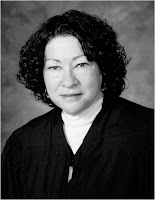Another arbitration clause ruling
/In another ruling from the Supreme Court of Ohio on the issue of the enforceability of arbitration clauses, the Court has once again ruled that clauses requiring arbitration will be broadly enforced, and that almost any aspect any issue arising from the contractual arrangement will have to be arbitrated if the contract contains an arbitration clause. In Alexander v. Wells Fargo Financial Ohio 1, Inc., the Supreme Court of Ohio ruled that even if the breach of a contact would trigger statutory penalties, the penalties still have to be arbitrated. Generally speaking, arbitration is preferred by businesses because arbitrators are often business insiders (who are presumed to have pro-business leanings) and because the requirement to arbitrate a claim essentially eliminates the ability to prosecute a class action against a business. Thought: If your business is entering into a contact with a bigger business, be careful to read the contract to see whether you want to waive your right to have a trial court resolve your dispute rather than an industry insider.




